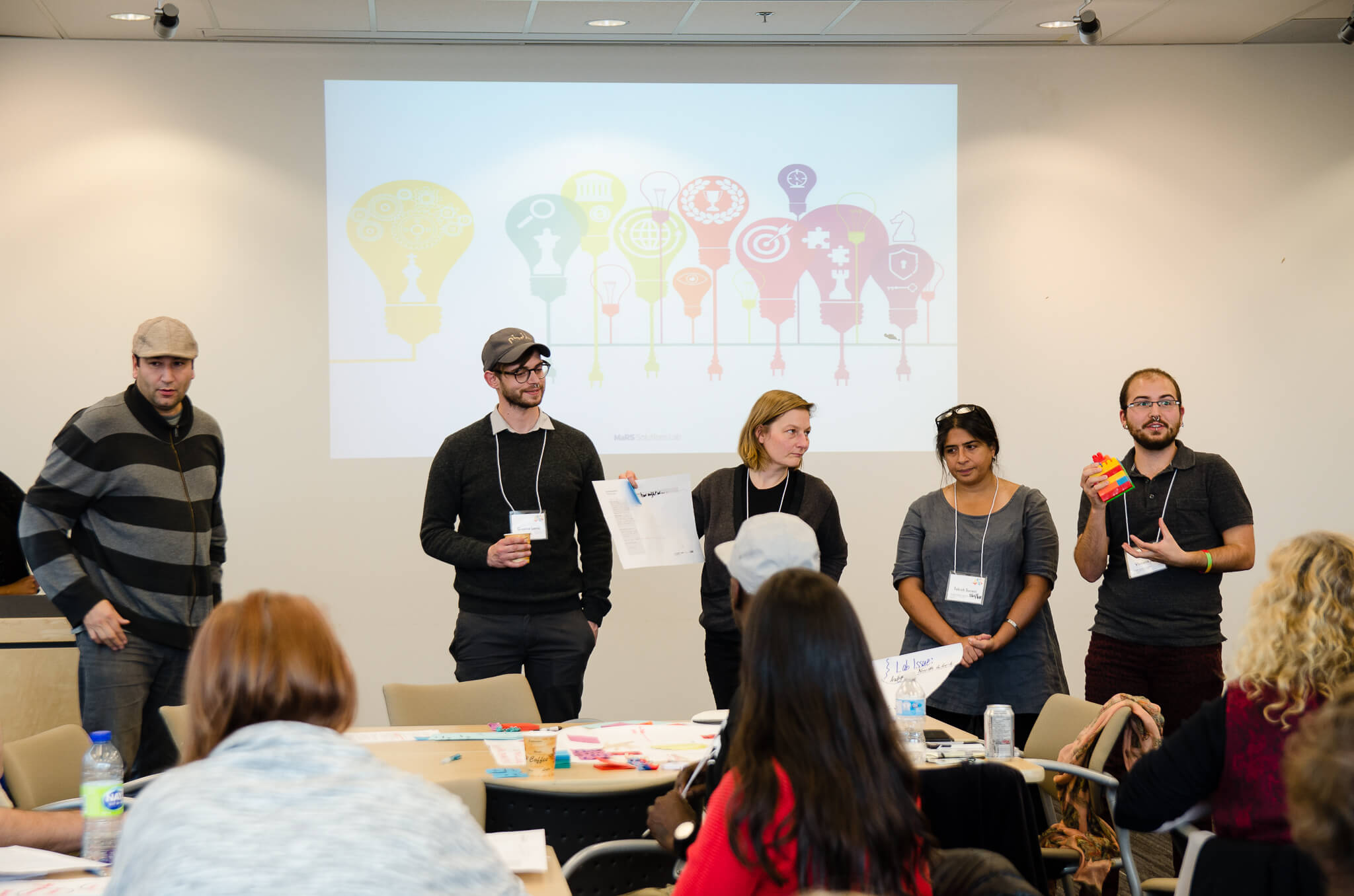Reflections on Indigenizing Youth Work on National Aboriginal Day
“Reconciliation is not an Aboriginal problem; it is a Canadian one.”
– Truth and Reconciliation Commission of Canada Report
Today, on June 21, we celebrate National Aboriginal Day. On this day, which also falls on on the day of summer solstice, we celebrate the history, contributions and cultures of First Nations, Inuit and Metis peoples of Canada. June is also as National Aboriginal History month, and has been since 2009. Many events have happened, and will be happening across Canada this month, inviting participants to learn about, celebrate and share in the values, customs and cultures of Aboriginal peoples. For those of us engaged in youth work, it is also an opportunity to rededicate ourselves to considering what our roles are in the work of Truth and Reconciliation: supporting the holistic wellbeing of all youth, including Aboriginal youth, and co-creating more opportunities for constructive dialogue, collaboration and action when it comes to these important issues. But what does this look like?
“[There must be] a change in perspective about the way in which Aboriginal peoples would be engaged with Canadian society in the quest for reconciliation.. [We cannot] perpetuate the paternalistic concept that only Aboriginal peoples are in need of healing…The perpetrators are wounded and marked by history in ways that are different from the victims, but both groups require healing…. How can a conversation about reconciliation take place if all involved do not adopt an attitude of humility and respect? … We all have stories to tell and in order to grow in tolerance and understanding we must listen to the stories of others.”
– Reverand Stan McKay, Residential School Survivor
In October 2016, YouthREX held a Design Day where we brought together youth sector stakeholders to collaboratively tackle four ‘thorny’ challenges, or Idea Labs, that youth and youth workers experience. One of the Idea Labs we decided to tackle was on the topic of Indigenizing Youth Work. We believe that in order to improve outcomes for both Indigenous and non-Indigenous youth living in our communities, youth sector stakeholders need to participate in the restorative work of truth and reconciliation. This is a sentiment reflected in one of the Truth and Reconciliation Commission Calls to Action, which calls for federal and sustainable funding to support “community-based youth organizations to deliver programs on reconciliation, and establish a national network to share information and best practices”.
In the challenge brief we drafted on this topic for the Design Day, we posed some big questions, including:
- How might the work of truth and reconciliation unsettle dominant youth sector structures and practices?
- How might we learn from and integrate Indigenous experience, history, theory and worldviews into youth work practice?
- How might the youth sector work ‘in a good way’ with others to address the legacy of residential schools, close gaps and remove barriers, support Indigenous culture and reconcile relationships with Indigenous people?
We encourage you to check out this recap report, which shares the challenge brief on this topic, Indigenizing Youth Work: Towards a New Relationship, as well as the story of this design day, what YouthREX learned specifically from the two groups working on this topic, and the two prototypes that were pitched: 1. A Youth-informed website/app on Indigenous Knowledge and 2. An Indigenous Youth Leadership Network. The report also features case studies of two organizations doing extremely valuable work that reflects some of the ideas and principles of the ideas that were pitched: The Canadian Roots Exchange – Youth Reconciliation Initiative and the Mushkegowuk Youth Department.
As you can imagine from the questions we posed on this topic, there are no easy answers or quick fixes to these complex issues. It is clear though, that stakeholders are eager to hear and learn directly from Indigenous youth, be able to ask questions and find ways to transfer the knowledge shared in respectful ways. Moving positively towards truth and reconciliation in the youth sector context is a journey and process that will require us to work together in different and sometimes uncomfortable ways.
Here at YouthREX, from just holding the one Design Day, we learned a lot about how event design can hold colonial principles, the importance of truly fostering relationality and the value inherent in taking time to embrace experiential processes. Most of all, effectively communicating and embodying these tenants is key.
We look forward continuing our role in hosting as well as participating in spaces where we can learn with and from Indigenous and non-Indigenous stakeholders. We know that 42% of the Indigenous population of Canada is under 24 years old, and that colonial, historical, and present actions have significant and deeply rooted consequences that need healing. There is urgent work that needs to be done thoughtfully and collaboratively.
Hearing the stories and perspectives directly from diverse Indigenous youth is such an integral part of this journey – their individual stories are just as, if not more, important and relevant to this process than the larger generalized, and often deficit-focused, narrative of what it means to be an Indigenous youth in Canada today.
We are doing some deep thinking about what this means in the context of our work here at YouthREX, and in the context of the youth sector generally. We hope you join us in this process.
Please check out the resources below to learn more about Indigenous and Aboriginal youth perspectives and wellbeing.


